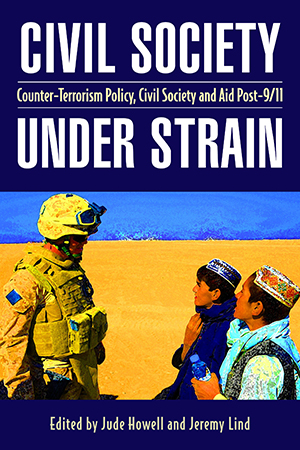As they investigate the convergence of security and development objectives following the attacks of September 11, 2001—in particular as this relates to civil society—the authors focus on four themes: the intersection of the "war on terror" regime and national politics, the increasing regulation of civil society, attempts to co-opt parts of civil society into security and counterterrorist agendas, and the use of aid and international development policy to further broader security objectives.
Jude Howell (1956-2022) was professor of international development at the London School of Economics and Political Science. Jeremy Lind is a research officer at LSE.
"An impressive range of contributions ... results in a serious study that points to some of the most unexpected and least recognized consequences of the war on terror."—Paul Rogers, University of Bradford
"Presents a compelling case for the need to understand the connections between the global security agenda and national and local politics. The summative message of this critically important collection is that across different country contexts the so-called 'war on terror' has ricocheted through civil society organizations in ways that are actually and potentially damaging to state-society relations and to international development."—Jo Beall, University of Cape Town
"Offers careful, scrupulous analyses of a subject that might have inspired shrill, emotional responses: damaging intrusions by governments on civil society in several countries since 9/11."—James Manor, University of London








